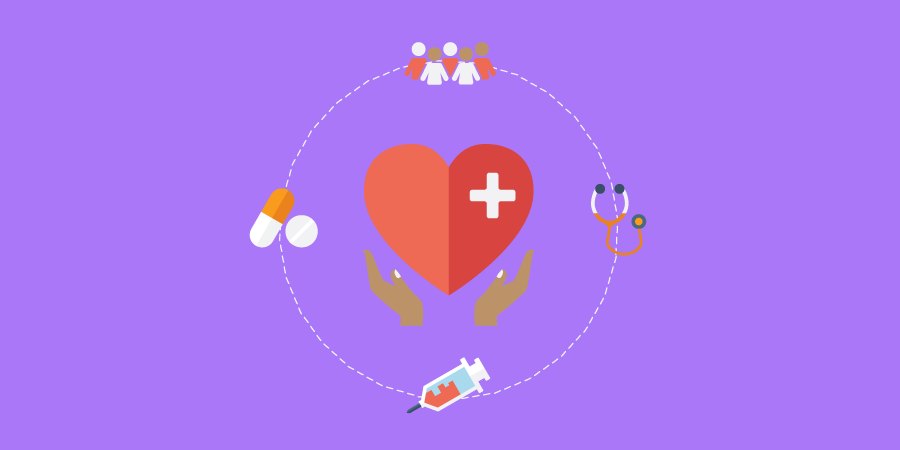Patient Perspective: Linnea Olson, Cancer Activist
Linnea Olson, a lung cancer activist and blogger, discusses terms of respect, patient-centered drug development, and online patient communities.
Linnea Olson, a lung cancer activist and blogger, discusses terms of respect, patient-centered drug development, and online patient communities.

Clinical trials help researchers and pharmaceutical companies learn which of many promising molecules and pathways identified in laboratories might rein in cancer. Central to such research are people like Linnea Olson, who has participated in three major lung cancer drug trials as well as related research on circulating tumor DNA. As she observes in her eloquent, salty blog Life and Breath: Outliving Lung Cancer, she has “skin (and plasma) in the game.” A cancer activist, artist, and blogger, Olson has lived with advanced lung cancer for 14 years.
Olson chooses words with care, aware that small differences in terms can offer respect and space for a spectrum of people coping with cancer, including those who will not see a cure. She answers three questions about identifying as a lung cancer activist, patient-centered approaches to drug discovery and development, and benefits that flow from online patient communities.
Interview edited and condensed for clarity
I really don’t like the word “survivor.” I just think it has so many loaded connotations. I say “surviving” because it’s present tense, ongoing. “Survivor” brings up winning and losing, too, which I think is disrespectful. As far as “advocate” and “activist,” I certainly started out as an advocate. Then, at a certain point in time, I realized I wasn’t interested in being a poster child. I’m grateful, but with a big dollop of angry on top. I think that’s appropriate. There are issues that need to be discussed, and some people are reluctant to do so. So, activist seems a little more appropriate.
I think industry is ready and willing to listen. Drug companies are beginning to understand that patients view trials as treatment options, not just as research. That’s a paradigm that’s really changed. As trials stand now, patients are taking on a bigger burden: more blood, more sweat, more tears, more money. I’ve said that I’m willing to do almost anything to stay alive. But I want that honored, not exploited. I’d like to see the way participants are looked at in trials become less “mouse/rabbit/rat/beagle” and more “astronaut.” We really are explorers, in a way. I would like to be supported in that endeavor. Recognize that I’m taking on great risk and greater burden and make it easier for me.
People sometimes have this misperception that everything — all your medical expenses — is covered when you join a clinical trial. It’s not true. Usually, with a drug trial, I’ve gotten the drug for free and then maybe one other procedure that normally wouldn’t be ordered. The rest is billed to insurance, which means my deductible maxes out in January every year. My medical costs are crazy. More than a third of my income goes to that. I haven’t even gotten my parking paid for in almost 10 years — gosh, 11. My current trial recently started paying for parking — after four years, nine months — due in no small part to my pushback. And it's such a small thing.
When I do these interviews with pharmaceutical companies, I’m frustrated because they talk about problems with accrual. There’s this assumption that the only reason people are not joining trials is that they don’t know about them. It’s so much more complicated. Because of the greater burden — and I’m not even addressing the fact that you have to qualify for a trial in the first place — someone with lesser means, lesser income, potentially cannot even join a trial. I don’t even think the science is as good as it potentially could be because you’re not getting a representative population.
Online communities have really changed what it means to be a patient for those who choose to participate. They have been tremendous for sharing information. Treatment options, trials, side effects, and, certainly, doctors are discussed. There are liabilities. Obviously, not all information is going to be correct. And if you’re connected to a lot of people, you’re going to lose a lot of people.
But the emotional support piece is such an important component. From my perspective, it helps so much to be able to talk to these — to use my metaphor — other astronauts who’ve been to this strange planet I’ve been to. With a disease like lung cancer, the majority of us in online communities have stage 4 cancer. A lot of people are going to die. That’s a hard thing to talk about for somebody who is not in this arena. For those of us who face it, we really help each other out. We’re doulas to each other. For me, this online community is another family.
Continue the conversation on Twitter by connecting with us @HMS_ExecEd or with Linnea Olson @1111Linno. Join Linnea Olson in our spring 2020 program, Driving Health Care Strategy: Insights from Inside the Ecosystem.
— Francesca Coltrera
Access the latest insights into the business and practice of health care, brought to you by Harvard Medical School.
From digital health to trends in patient care, our open enrollment programs are designed for leaders whose work impacts health care.
© 2025 by the President and Fellows of Harvard College